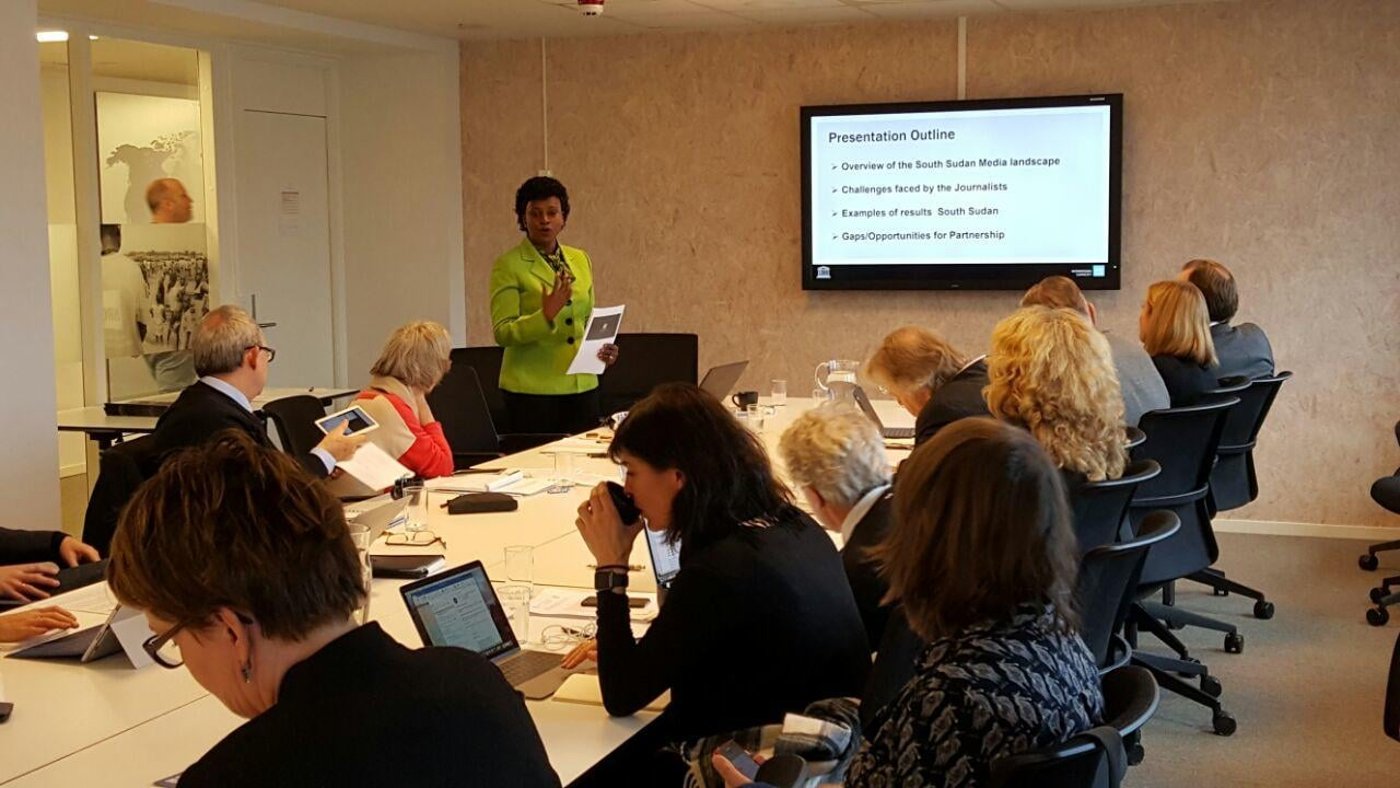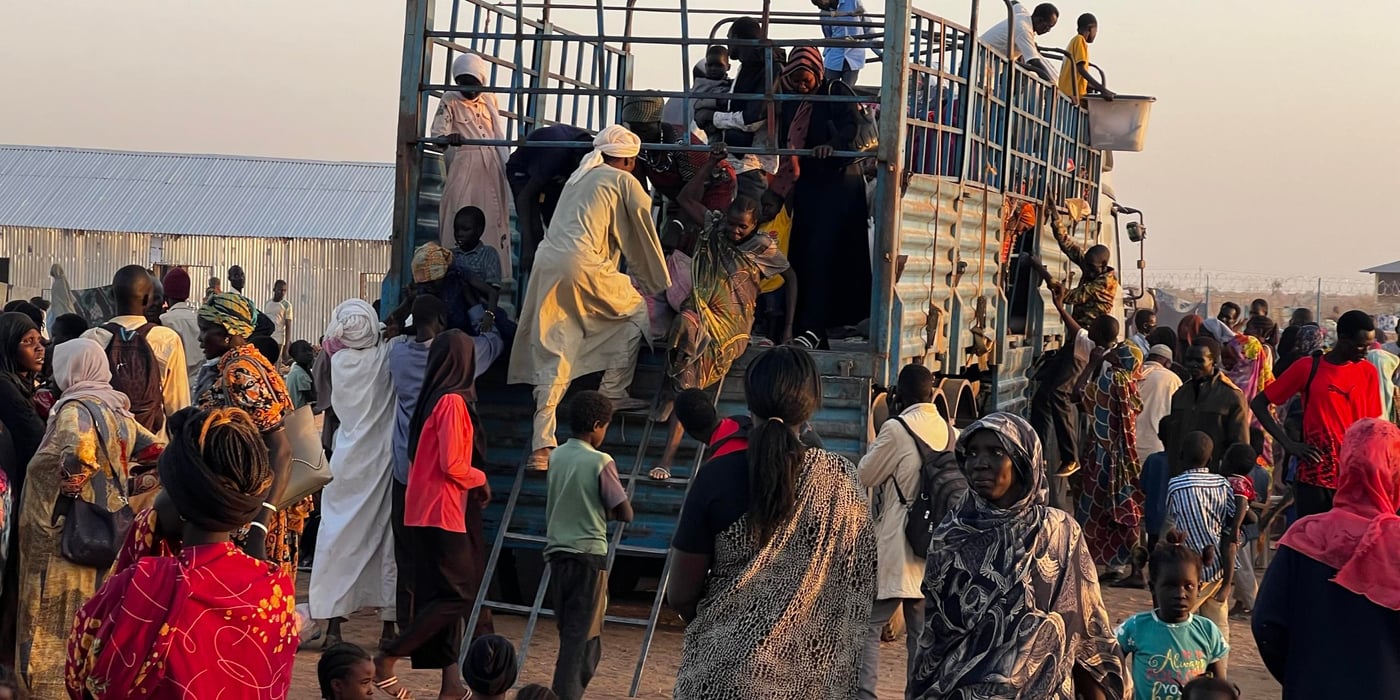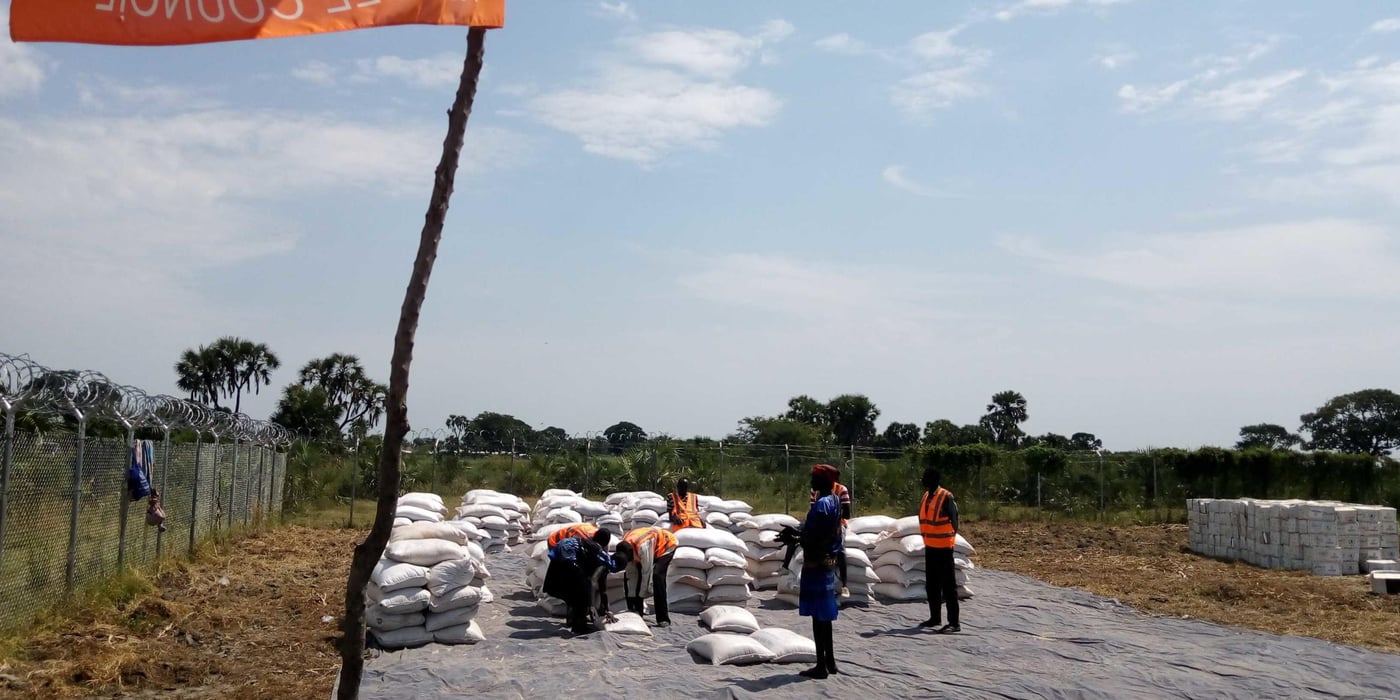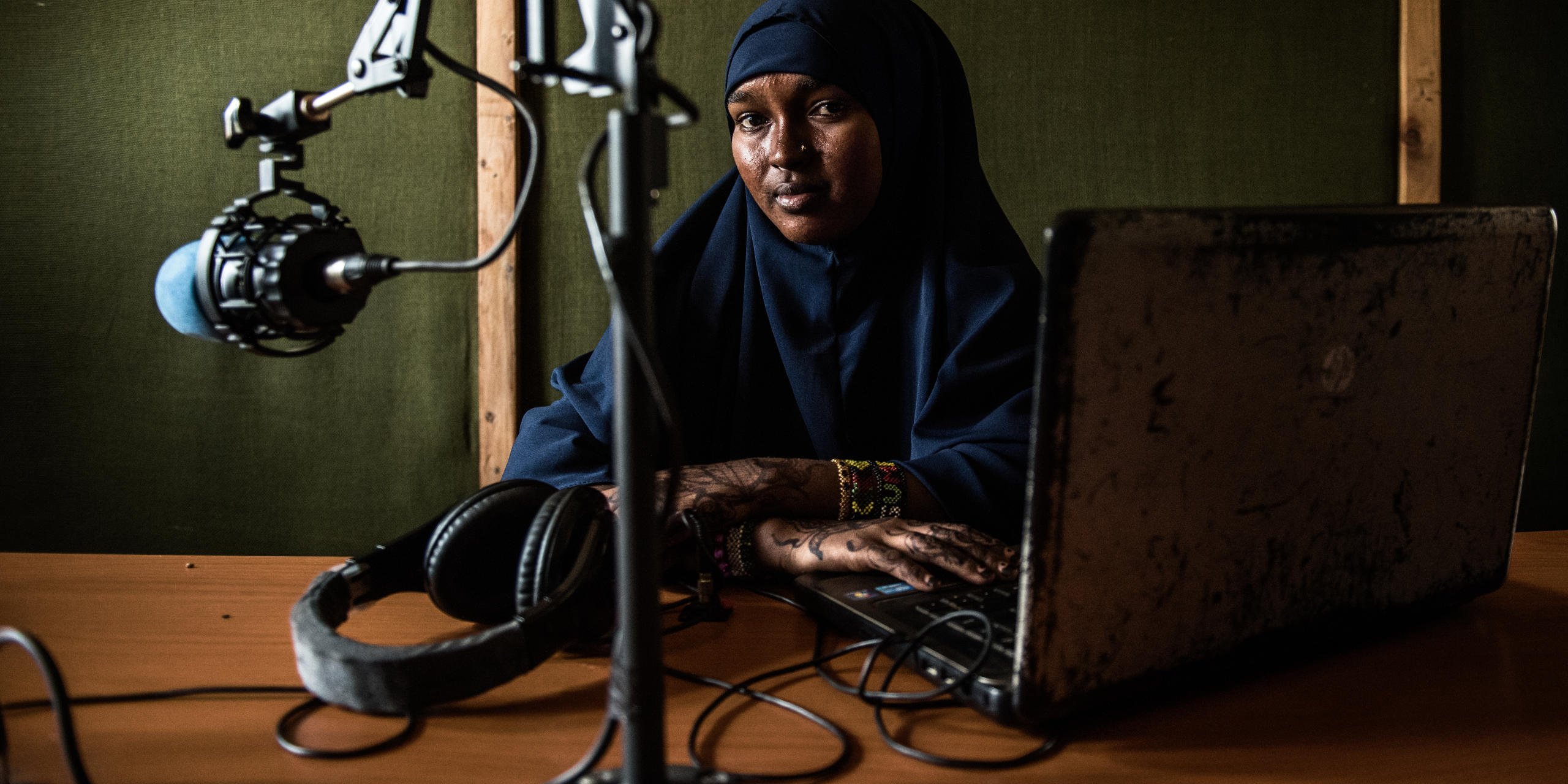
“The 92% impunity on crimes against journalists is staggering and the concern should not just be on those killed but also on those journalists who are alive and suffering”, said Assistant Director General for Communication and Information at UNESCO, Frank La Rue, speaking at the event.
In the past ten years, more than 800 journalists, media workers and bloggers have been killed, and many more are harassed, attacked or imprisoned.
With this increased rate of violent incidents against media outlets and journalists, shrinking space of media freedom in many countries and reduced donor funding, the need to strengthen joint responses and coordinate with country-based media partners is key to achieving effective results that carry sustainability, high impact and avoid duplication of efforts.
“No single actor has the capacity to comprehensively address and respond to the safety of journalists challenges at national, regional and global levels. We need to join forces and collaborate on all levels to ensure a healthy working environment for the media”, said Benedicte Giæver, NORCAP Director.
The event was a follow-up to a NORCAP assessment report earlier this year on how NORCAP, UNESCO and other stakeholders could develop a more widespread response to the matter.
“We consulted key personalities in Norwegian media and the media training world. Recognizing the many good initiatives, we still found that there is a large unutilised potential for collaborations with several institutions and people both staff-wise, on a programmatic level, on advocacy and awareness-raising and financially. The substantial knowledge and network of the media world in Norway and the Nordic countries gives us a great platform for further collaboration on this issue”, said Giæver.
Increasingly dangerous
Working as a journalist is becoming increasingly dangerous in many countries, as press freedom becomes more restricted, particularly in times of conflict or crisis. This is when independent reporting is most needed, as autonomous witnesses and to provide information to affected populations and the world at large.
This is also why more needs to be done to bring an end to attacks against journalists and to promote independent reporting in crisis and conflict situations. In May, the World Humanitarian Summit called on member states, UN agencies and media organisations to implement the UN Plan of Action on the safety of journalists and the issue of impunity.
“Safety of journalists has become one of the foremost priorities in global efforts to support freedom of expression and each attack against a journalist is an attack on freedom of expression”, Frank La Rue continued.
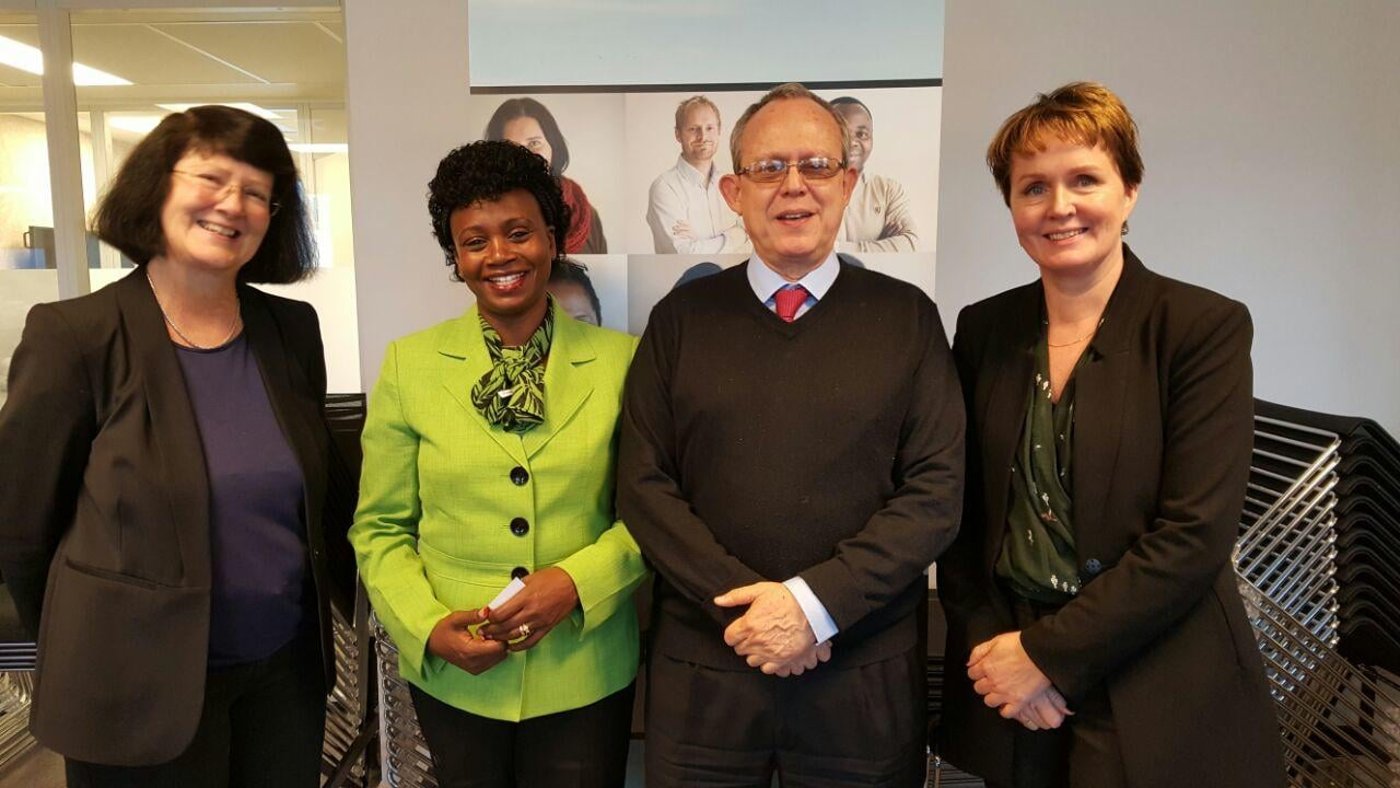
Important contributions
NORCAP has been involved in this work since 2010 through deployments of communication and reporting experts to UNESCO in countries such as Pakistan, Haiti, Myanmar, Liberia and South Sudan.
Lydia Gachungi has been deployed to South Sudan for the past two and a half years, working on raising awareness on the importance of safety of journalists and press freedom, monitoring and reporting of media violations and capacity building of local journalists, authorities and police on the importance of press freedom and ending impunity. She has also put in place stakeholder coordination mechanisms, such as the South Sudan media sector working group, thematic group on safety of journalists and a similar structure for media donors and development partners.
“Transferring skills is the key issue, but also the most difficult one. We need to ensure that the journalists we train are actually able to do the job properly. There is a lot of self-censorship and lack of incentives to go into journalism once they have graduated. Many leave the country or are picked up by NGOs or the UN”, she says.
Gachungi also underlined the importance of continuing to work with governments, armies and regional authorities and said the UN Plan of Action was s strong tool because it brings together all the relevant stakeholders.
“Journalists working in countries in conflict face immense security, logistical, economic, social and political challenges that contribute to the increased rates of media violations. This can only be comprehensively addressed through interventions that bring together the media stakeholders and all three arms of the government”, she said.
Need for national mechanisms
During his presentation, UNESCO representative, Frank La Rue, talked about the agency’s work on supporting states in establishing national safety of journalists commissions. Through these commissions, governments and stakeholders can put in place monitoring and prevention policies, investigate cases against journalists and ensure states have clear legislation and policies protect press freedom. La Rue stressed that although such institutions are most needed in countries experiencing war or conflict, also well-developed democracies can benefit from having a journalists’ safety commission.
During the discussion that followed, participants shared multiple good examples of their projects in the field of freedom of expression. They also debated possible ways of bringing partners together on a global level to share best practices and synergise their efforts within the framework of the UN Plan of action on safety of journalists and the issue of impunity. Suggestions included a working group of global partners , and more safety of journalists experts within NORCAP, who could receive training from Scandinavian training institutions, media organisations and development partners.
Jesper Højberg, Director of the Danish International Media Support underlined the importance of proximity. Sustainable results on protection of journalists cannot be achieved without cooperation with local communities and key stakeholders in the region where the journalist is working. Knowledge of local communities and their security concerns is also essential to protecting colleagues in the field.
Way forward
NORCAP and UNESCO are at present developing a comprehensive three-year safety of journalists programme. The programme can, also based on the partners’ recommendations, provide the much needed synergy between the humanitarian and development actors to jointly address the safety of journalists’ challenges in identified countries that are in conflict and post conflict, as well as in relatively peaceful and democratic states.
The joint programme would support the NORCAP safety of journalists training, deployments and ensure funds for local projects in the selected countries.
NORCAP Director Benedicte Giæver called on the Scandinavian partners to support activities in the field and play a key role in the global platforms that influence how safety of journalists is treated at the international and intergovernmental levels.
